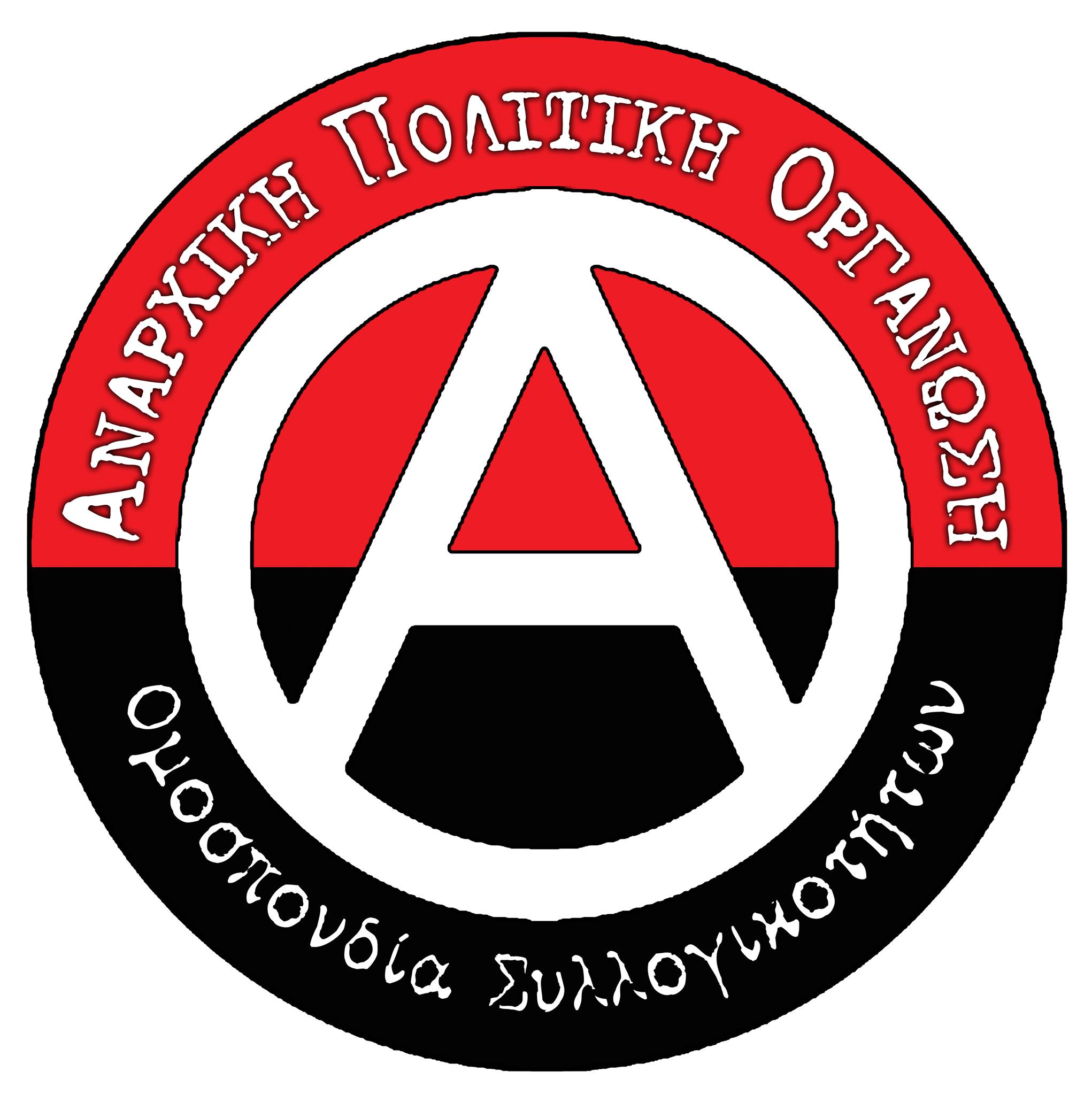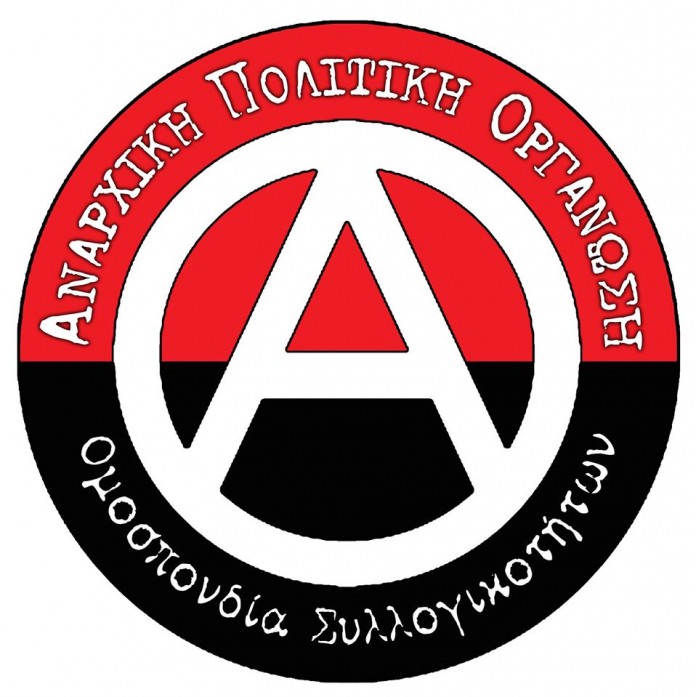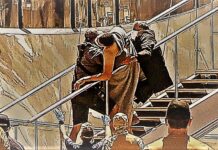- Global Capitalist Crisis as a Total Attack on the Oppressed
What we call complete crisis of the system is the violent redeployment of power that targets to alter the terms of social and class antagonism for the worse for the exploited. The acute contradiction between real social needs and social and class relations that impose the amputation of these needs and make it hard for them to be met leads to the economic, political, ethical and environmental dimensions of the crisis.
The Crisis is a structural element of the system, since it is caused by contradictions inherent in its function and its very aim to completely control society. Crisis management is used by the system as a means of restructuring in order to reproduce, to extend and to perpetuate itself, increasing exploitation and plundering in order to maximize its profit, strengthen the power of the exploiters and subjugate the people whom it is constantly immersing into poverty and misery.
The political and institutional decadence of the capitalist world is obvious; so is its economic deadlock, its indigence in values and meanings, the erosion of its ideology, and above all its destructive effects on nature and on our lives. The result of the above is the sharpening of social and class antagonism, while through reconstruction State and Capitalism attack all social-class acquired achievements and every social freedom by increasingly enforcing odious terms of exploitation and oppression of the lower classes.
- The Expansion of War as a Consequence of the Need of State and Capitalism to Broaden their Domination
“War is the continuation of politics by other means”
-Carl Von Clausewitz-
Worldwide, economic and political masters attempt a merciless attack against people and regions of the capitalist periphery, through warfare, enforcement of dictatorships and theocracies while overthrowing others, by inciting civil conflicts, destroying productive forces and taking control of natural resources, through economic exploitation of populations, environmental destruction of entire regions and, of course, with a huge number of human losses. This condition creates vast wastelands available for looting and ready for “reconstruction” in a way that will ensure the control over populations and regions, the profit growth with the expansion of economic activities of the global economic elite and the redeployment of geopolitical balance of power within the framework of interstate rivalries of global, regional and local powers.
The political and economic elites form powerful capitalist centers in which almost the entire world’s wealth and all trade and financial activities are concentrated, broadening the frames of suzerainty and control in various regions of the planet (in a number of countries in Asia, the Middle East and North Africa mainly, as well as elsewhere) through a procedure of further exploitation of both the natural world and human labor. A process that, while taking place under the guise of development, leads to the seizure of wealth, the pauperization of societies in the capitalist periphery, the deepening of control and the intensification of exploitation.
The expansion of war conflicts from the Middle East to the outskirts of Europe result in flows of migrants and refugees who leave their homes searching for a “better fate” crossing the borders and heading to the capitalist metropolis.
- Modern Totalitarianism and the Imposition of Dominant Capitalist Ideology as an Inescapable Condition
“The question is,” said Alice,
“whether you can make words
mean so many different things.”
“The question is,” said Humpty Dumpty,
“which is to be master—that’s all.”
Lewis Carroll
Capitalist restructuring tends towards an overall imposition of state and capitalist authority on the social formation — towards modern totalitarianism. This tendency of power constitutes a crucial and firm choice that shapes reality and becomes apparent in all social fields and aspects of daily life. This totalitarian face of State and Capitalism is embodied by national and transnational political and financial elites within the western world and the capitalist periphery.
Thatcher’s doctrine of TINA –There Is No Alternative– is being fortified as a condition that penetrates all social activities, allowing, during the crisis era, the emersion of a permanent state of emergency and potentially a state of siege. All means can be used, in more acute forms and with even greater intensity, in order to ensure that the interests of the political and financial elites are completely enforced and served without obstructions.
The political and economic form of capitalism during crisis, despite the different shapes it takes from place to place, means nothing less than a declaration of total war against the plebeian sectors worldwide. Additionally, due to the decline of social and class resistances, either because they are assimilated or undermined, as well as because of the ideological hegemony of the capitalist imaginary and the absence of a social liberation vision, the global state-capitalist complex and its institutions are more unbridled than ever.
The ongoing change in the terms in which domination seeks to extort social consent in order to renew the pretext of its legitimacy can be seen in this light. Consent is therefore no longer obtained in the same way it used to during the past decades because of the sharp contradictions within the system. That’s why authority is more frequently resorting to overt violent imposition on the social field, not hesitating to use even the cruelest and more criminal practices against those who resist, those who attempt to sabotage the plans for absolute enslavement of the plebeians.
This point of view should not be perceived as a stance claiming that power is giving up all other non-violent methods of gaining consent. Elections are the typical and main example of such a process in which citizens are asked, in the name of democracy, to voluntarily validate their consent for the reproduction of this particular model of political and social organization, just selecting the administrators. Besides, even the exemplary use of violence against those who resist, apart from serving the obvious purpose of repression, it simultaneously aims at restraining social dissent within the limits of a harmless antagonism with the ruling ideas.
Key points in the coordinates of modern totalitarianism that aspires to the implementation of all the above and wishes to establish an irreversible condition of crude exploitation and oppression are: the constant inclination of bourgeois parliamentary democracies towards a totalitarian parliamentarism of the western states; the expanded and enriched rhetoric concerning the duality of legal/illegal enabling the illegalization of populations, of radical social processes and forms of resistance; a further redefining of what is useful and what isn’t, aiming towards the constant devaluation of social needs and claiming, that way, the parallel devaluation of the struggles raising such demands; a reconstruction of useful to the ruling class schemes such as the “obedient and docile citizen”, the “internal enemy” or the “external threat”.
The state-capitalist complex is attacking and at the same time it is fortified, anticipating the social explosions that are ripening as a result of social and class suffocation stemming from the generalized intensification of exploitation and oppression that is imposed by state and capitalism, initiated by transnational mechanisms and apportioned locally by cooperating national governments.
- From Permanent State of Emergency to Constant State of Exception
The State has continuity – the power itself is a continuum. Rendering the State of Emergency permanent means constantly upgrading repression mechanisms and methods of monitoring and control.
The repression strategy which is applied consists of establishing a State of Exception for “surplus populations”, introducing concentration camps for migrants and refugees, excluding from social life entire social groups, such as drug addicts, HIV positive women and the homeless, as well as enforcing the zero tolerance doctrine against any form of resistance and struggle. It is a repressive strategy setting the stage in which modern state and capitalist totalitarianism is marching.
The role of transnational state and capitalist formations is central in this process. European integration expressing capitalist looting and the shock doctrine is wrecking our lives. Wars abroad, entrenchment within the western states, death for the “wretched of the earth”, for those who happened to be born on the “wrong” side, and a no man’s land for people who are hunted down. The fate of those considered excess populations awaits either with the form of death in the minefields, crossing the fences and the Mediterranean, or, if they manage to survive, with the form of imprisonment in concentration camps. The consolidated illegalization of immigration and subsequently of human life itself is escalating. This is basically a reformulation of the Nazi concept of “life unworthy of life”, adjusted to the context of contemporary bourgeois democracy. Just as in Nazi Germany entire groups of people were excluded from the right of life, today the poor, the outcasts, refugees and migrants are considered excess populations, increasingly deprived of the possibility to survive.
As long as inequalities and divisions are promoted, and social cannibalism is cultivated, the more the conservative and retrograde parts of society are siding with the mechanisms of the state. The fact that the state and capitalism produce policies endorsing the fascist imaginary of “exterminating the weak” paves the way for fascist and neo-Nazi formations to play once again their traditional counter-revolutionary role, contributing to the state’s attempt to totally subjugate society. This projection that links social Darwinism in the capitalist framework with the fascist ideal suggesting the final dominance “of the fittest” is what makes Horkheimer’s words extremely important today: Whoever is not prepared to talk about capitalism should also remain silent about fascism.
- The Situation in the Greek Social Formation
In the Greek reality, the frontal state and capitalist attack is expressed though the constant enforcement of new, more burdensome terms of exploitation and through the constant aggravation of repression and control. At the same time, this attack intensifies the process of restructuring the state and capitalist way of organizing society. The weakness of the regime to produce an overall and cohesive social vision, its wide delegitimisation, the growing social disaffection and social resistance are attempted to be confronted with fascistization and the promotion of social cannibalism.
Regarding labor matters, the employers create cruel conditions of exploiting the proletarians and what was acquired by class struggles is being constantly shrunk. Starvation daily wages and salaries, working hours adapted to the employers’ necessities, dismissals and constant blackmailing of unemployment, with thousands of unemployed and underemployed living under conditions of poverty and social exclusion. While a great part of the population is getting impoverished, basic and necessary social public goods are commercialized and the social wealth is devoured by national and international capital. It is an overall process of redistributing wealth in order to benefit the more powerful by ravaging the lower social classes. At the same time the trade union organizations’ elites who are controlled by employers and political patrons, having lost a major part of their intermediary potential, attempt to limit class struggles by encouraging social pacification. Their institutional role is just complementary to this of the employers, in order to fulfill the pretense of a democratic debate between social actors, while they attempt to exhaust every possibility to deceive the working class and to disorientate from leaderless radical struggles. The unprecedented attack that the local and transnational political and economic elites have unleashed against the plebeians is expressed by the entire political personnel rotating in the authority management. The political system, particularly today, has exhausted the margins to reproduce itself and is trying to balance its losses by drawing forces from all domains of the political spectrum, where new reserves are emerging.
The complete identification between the directions of the international financial-political elites and the local ones outlines the gloomy reality for the oppressed; poverty and misery, constant trivialisation of human life expressed either as a silent suicidal death in the apartments of big cities or as blatant drowning in the Aegean sea; for some people it means unemployment and unpaid slavery and for the rest wage slavery with extremely long working hours for pennies in exchange.
At the same time and as a result of the conclusion that “when the rewards are not enough, the punishments are increased”, the Greek police is placed in the position of a modern metropolitan army, whose every movement is a way to put into practice a constant coup in the life of social resistances. Concentration camps and prisons, new methods to discipline the rebellious ones, apathy pills for the rest, exclusion and state of exception in a condition that highlights the passage from a state of emergency to a society of enlarged social impoverishment and class slavery.
On the “left-right” government
Today, the choice of a left/socialdemocratic management has come to give a lease of life to the already bankrupted political-economic model. This is achieved by forming conditions of social peace, national reconciliation and inter-class cooperation, through neutralising any social and class resistance in the streets, in neighborhoods and workplaces.
For us, obviously, the present alternative management of governmental authority cannot be judged using as a criterion the “could be worse” philosophy and comparing this government to the previous one. Nor can we agree with those who in the face of this government’s failure or subversion chose to see the monster of fascism as the only possible outcome. The starting point of our thinking and our actions is neither to criticize this government according to its own imperatives and inconsistencies, nor by comparing it with the previous neoliberal one or with the threat of a fascist one, but, on the contrary, based on the revolutionary vision for generalised social self-management. Our view on the subversion of the government (and of every government) – according to by whom it is carried out and why – is a choice to be confident in the struggles organized from below carving the way towards a total subversion, towards a new society of freedom, equality and justice. In a few words, in this left-right governance of the political-economic system we see no real barrier to fascism (besides, fascism is being raised again and again by the system itself), but a barrier to the revolutionary social emancipation.
In addition, this government is also a result of the fact that the movements encountered their own limits and impasses, and started to retreat as they were not able to broaden their imperatives and to aggregate and generalise different struggles in order for social and class counter-attack to be organised. The gap which was created because of the movements’ retreat was filled by the “hope traders”, who had been up to that point on the fringe of the struggles, whispering their proposals for institutional solutions. Society’s turning from the streets and self-organization to the ballot boxes, to delegation and mediation was a critical blow to the struggle.
The key elements for understanding the reasons why the expression of social dissent and rage turned from the streets to the institutions and the ballot are the following: the brutal ideological and repressive attack of the state; the weakness of the social and class movement to transcend the limits of protest, of riots and of insurrectionality, so as to form and move towards a direction of subverting the state and the capital on the way to social emancipation. Moreover, we should add the integration of struggles into the fabricated dominant duality “memorandum-antimemorandum” and the trade of hope that was mainly capitalized by the reformist left.
In the current political situation, we consider that the political and ideological capital of the “anti-memorandum” discourse constituted the field for the current government to obtain social consent, which is already becoming weaker due to the incurable contradictions of the system in a prolonged period of brutal attack to the plebeian parts of society.
It is important to highlight the fact that, when we speak of the political and ideological capital of the “anti-memorandum discourse”, we refer to the dominant point of view that interprets memorandum policies as imported and imposed from abroad, rather than as an effect and an expression of the intensified state and capitalist restructuring. It has been proved that the various ideological dual concepts formulated by the Left in order to supposedly approach more directly the “ignorant masses” not only do they fail to reveal the real enemy in the eyes of those who are affected the most, but on the contrary they obscure the causes of the social problem and divert the ideological-political discussion away from the only question addressing the matter in its essence and its full extent: Capitalism, authority and brutality or social revolution, equality and freedom?
The question before us demands a convincing answer that will reverse the sense of disappointment experienced by a part of the oppressed masses after the reformists have completely failed even to evoke the slightest feeling that social expectations for improvements were justified. At the same time, our answer attempts to trigger the notion that the political system should be rejected entirely; a notion which is gradually created in the people from below and it remains to be depicted in a battle position, realising that no solution is feasible through any management of the state and capitalist mechanism.
- THE NEED FOR ANARCHIST POLITICAL ORGANIZATION TODAY TOWARDS THE SOCIAL REVOLUTION OF TOMORROW
“Admitting as a possibility the existence of a community organized without authority, that is without compulsion — and anarchists must admit the possibility,
or anarchism would have no meaning — let us pass on to discuss
the organization of the anarchist movement. “
-E. Malatesta
As anarchist political collectives who are forming the Anarchist Political Organization (Federation of Collectives), we believe that the essence of the need to organize arises from the reality of the struggle itself. The experiences we have gained by participating in the struggle enable us to map the horizon ahead of us.
Our decision to form an anarchist federal organization is becoming stronger in the furnace of social and class struggle which is escalating. Gathering forces and resources on the basis of a dialectic strategy which asserts quantity while it defends the quality of political consistency is a crucial issue. The recapitulation of our ideas and actions within an acknowledged stable field of reference is a political leap, in order to be consistent as far as our declared goals and commitments are concerned, and especially the most vital of all, Social Revolution.
We believe that the process of permanent political osmosis within the structures and bodies of APO can become an important experience of struggle, as well as of theoretical processing and continuous attempt to ground the anarchist/liberating imperatives within society.
Finally, what is crucial for us is to develop a common strategy of struggle which will look where we want to go, unfaltering as far as its values are concerned, adaptive to being fueled by social needs, and inspiring the people from below to join the fight for social liberation. This is the kind of organization we have in our minds, a projection of a new world we bear in our hearts.
It’s not the end of History that has come, it’s only the vulgarity of political power which stands naked, and cannot be prettified. It can only be overthrown through struggles. In our neighborhoods, we must create more structures of solidarity and mutual support; in our workplaces there is a growing need to abandon once and for all the bureaucratic structures and join grassroots radical class structures. We must update the content of social struggles, compound social burst-outs, organise action. We must trace the passing to new paradigms of collective production, continuously questioning in practice the fundamental issue of property, which cannot be resolved by any form of power.
The only solution to tackle this situation effectively is more evident today. Through non-intermediary, anti-hierarchical and leaderless struggles from below, we can fight back against exploitation and oppression, fight for social revolution, and rebuild life with social solidarity and cooperation, without masters and slaves.
We must make the generalized social self-management a feasible reality, expressing political freedom and economic equality in a current revolutionary agenda. For a libertarian movement of all the oppressed and exploited, providing an outlet for actual social needs.
For Anarchy and Libertarian Communism
Anarchist Political Organisation
– Federation of Collectives –




![[gr, eng] Παύση κάθε δίωξης του αναρχικού Libre Flot](https://apo.squathost.com/wp-content/uploads/2023/10/banner_flot-218x150.jpg)

![[Θεσ/νίκη] Συγκέντρωση αλληλεγγύης στους/ις 38 συλληφθέντες/είσες της προβολής ταινίας στο Πολυτεχνείο](https://apo.squathost.com/wp-content/uploads/2026/02/638452557_1237402218595837_6602166265771342436_n-324x160.jpg)